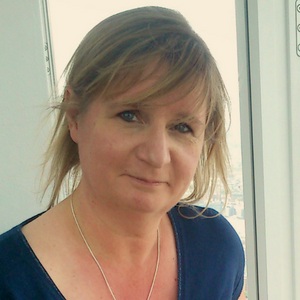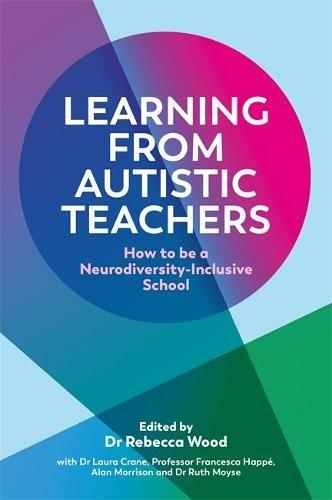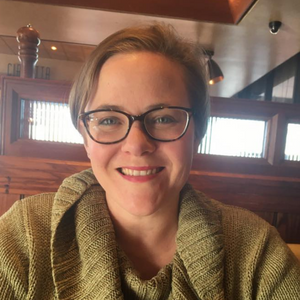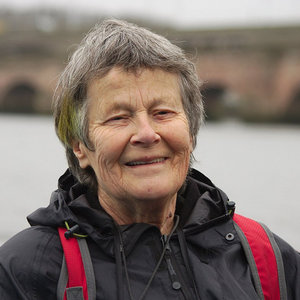Learning from Autistic Teachers
Dr Rebecca Wood, Senior Lecturer
In April 2022 a new book, Learning From Autistic Teachers: How to Be a Neurodiversity-Inclusive School, will be published by Jessica Kingsley Publishers. Share caught up with Dr Rebecca Wood, the lead editor to find out more.
Share: There is a lot of literature on autistic learners but very little about autistic teachers – what made you decide to focus on this topic for a book?
There is a very big gap in the literature in relation to autistic teachers and disabled teachers generally. As you say, there is an awful lot out there on autistic learners, especially children, much of it from an interventionist perspective. There has been some strong research and good practice in this area, of course, but it’s clear that school remains a difficult environment for many autistic children and young people, and that the problems of exclusion remain.
I also used to be a teacher myself, and so I often think about that in my research. I was aware that there is very little available that focuses on autistic and otherwise neurodivergent teachers, and so I wanted to address this gap. The book itself stemmed from the Autistic School Staff Project, which I lead, and book chapter authors are all individuals who work or have worked in schools in various roles. I felt it was important to have a diversity of perspectives in the book.
Share: How was your own research a catalyst for this work?
My PhD research, and everything that stemmed from that for a year or two afterwards, focused on autistic children in schools. But I realised that if we are always thinking about the children only, that is just half of the picture. Schools are very hierarchical institutions, and can be a little closed off, in my experience, with their own systems and routines. Naturally the attention is predominantly on the pupils, as it should be, but these factors combined can mean that there is insufficient reflection on well-being, inclusion and diversity for staff. So in 2019, I started the Autistic School Staff Project (ASSP), while I was doing an ESRC-funded postdoctoral Fellowship at King’s College London, with Professor Francesca Happé (also one of the book editors) as my mentor. The project has been through different phases, but a core principle is that we can’t expect to achieve inclusion for a diversity of children if we don’t have this for staff. So this is my main area of research at the moment.
Share: What particular strengths and insights do you find that autistic teachers bring to education?
There are many! One point to underscore as well is that our project, and the book itself, doesn’t just focus on autistic teachers, but autistic school staff in a range of roles in schools: there are teachers, of course, but also learning support assistants, special educational needs co-ordinators, visiting professionals and members of the leadership team. This means that autistic school staff are bringing their strengths, qualities and insights across the whole school. More specifically, autistic school staff have a particular understanding of autistic pupils and those with other additional learning needs, and so can play an important role in facilitating educational inclusion. If they feel able to be open about being autistic (and this is a key and problematic point which is discussed in the book), then they can act as role models to autistic pupils and their parents. But it’s not just pupils with additional learning needs who benefit from autistic teachers, but the whole school community. For example, monotropism (having a strong, in-depth interest and focus) can be an advantage for subject specialism and attention to detail. Autistic teachers are also less likely to be distracted by school politics and the social complexities of the staff room.
Share: The book features quite a number of topics and authors, can you give Share readers a flavour of that variety?
The book covers a range of topics and perspectives, including monotropism, issues with sharing diagnosis, dealing with change, mentorship, inclusion, teacher training, autistic strengths and leadership. It also covers intersectionalities in relation to ethnicity, culture, gender and sexuality, for example, and different work environments (e.g. mainstream, special schools) are included. The authors make clear the many hurdles autistic people can experience in the education profession, but also provide some really important recommendations and advice on how to improve this situation.
Share: What do you think unites all these contributions– did any overarching themes or findings emerge when you brought all of this together?
The book was developed from the Autistic School Staff Project, and so I used our research findings to inform the planning of the book. It is clear that autistic people can face numerous barriers in the education profession, such as a very significant sensory impact from the school environment, lack of support and understanding, communication and social differences. A key issue is whether or not they are able to be open about being autistic, and hearing autism discussed in a stigmatising way, for example, can mean that autistic teachers feel unable to share their diagnosis, and by extension ask for the support they need. This can lead to all sorts of other issues, such as having to ‘mask’ (hide autistic identity) at work, mental health issues and exhaustion. By extension, some autistic people go part time, or step back from senior roles, or drop out of the profession altogether. So a key focus of the book is to provide solutions to these issues. The overall message of the book is a very positive one.
Share: What do you hope will be the impact of this book?
I would say that generally, autistic teachers, and other autistic school staff, are very much a hidden population. So even though there has been an increased focus on autism and employment over recent years, there has been very limited attention paid to the school sector. So I think what is the most exciting aspect of the book is the sheer diversity of roles and experiences that are covered. I hope this is the start of a much broader recognition of the needs, rights and strengths of autistic educators, and an understanding of the vital role they play in educational inclusion.
Rebecca Wood would like to extend her thanks to the John and Lorna Wing Foundation who fund the Autistic School Staff Project. Information and free access resources can be found on the Autistic School Staff Project website.
‘Learning From Autistic Teachers: How to be a Neurodiversity-Inclusive School’ will be available from 21st April 2022.





